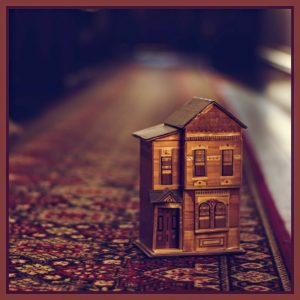Asking the Hard Questions
How Much Does a Tiny House Cost?
Generally, the cost of a tiny house depends on how much you are able and willing to pay. Here are just a couple points to consider:
- Do you have the ability to do some of the work yourself and can you get help from family or friends?
- Will you use new or recycled or repurposed materials? And remember, there is a big difference in using sheet rock for walls rather than expensive crafted wood.
In answering, keep in mind that it can take an average of about two years to build a tiny house, working on it part time, while, at the same time, you are paying rent or a mortgage. This means you might be able to save substantially if you hire a builder, if it is in your budget. A tiny house built by a professional builder can range from $50 to $60,000 or more, depending on your preferences and needs.
The majority of tiny house owners are mortgage free sooner than traditional home owners who carry large mortgages for years.
_________________
Why Does a Tiny House Cost More When You Compare the Cost of a Much Larger House?
It has a lot to do with the fact that a small or tiny house needs all the things that a big house has, but on a smaller customized scale. Frequently, tiny house owners will include costly materials, like expensive granite countertops, that they wouldn’t ordinarily put in a big house because of the cost. Special attention to detail is needed in small homes, which includes creative storage solutions not needed in bigger homes. Basically, the cost of the finished project depends on economy of scale and the materials chosen.
________________
Is It Legal to Live in a Tiny House?
This is probably the most asked question by those who are interested in living tiny. The answer is not easy because, in most cases, it depends on the laws, codes and ordinances in each town or municipality, big or small. That is why the tiny houses on wheels were the first to come onto the scene. They can be moved around easier to settle where they might be allowed. The movement is gaining popularity as more and more people jump aboard, so individuals and groups with influence and expertise are banding together to work on compliance and acceptance for the movement. Tiny House communities are becoming very popular, filling a need for a place to park a tiny house. Many RV parks are open to allowing tiny houses. Some cities are now allowing “accessory dwelling units”, or ADU’s, on the properties of existing homes, especially if they are built on a foundation.
________________
Can You Build a Tiny House Anywhere You Want?
Our country’s municipalities, cities, town and jurisdictions have their own laws and zoning codes. There is no requirement for uniformity and each is governed by their own set of rules. Some allow tiny houses in their area, but not as many as we would like at this time. The good news is, this is gradually changing. Tiny house enthusiasts are working to change the laws; but like anything else in politics, it’s a slow process.
In the meantime, many RV parks are welcoming tiny houses, and tiny house communities are popping up around the country, with the promise of more to come. In some areas like the city of St. Petersburg, FL, tiny houses on foundations, also known as Accessory Dwelling Units or ADU’s, are being allowed in back yards of existing homes. Tiny house owners continue to look for private property in areas zoned to accept their own tiny house.
I hope this has helped. If you would like to talk further, get in touch either at TinyHouseAdvisor.com or facebook.com/TinyHouseAdvisor

